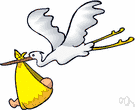
Folklore Definition

Folklore Definition Rating: 4,2/5 9027 votes
What is folklore? Defining Folklore. Rather than offering a definition of folklore, Dundes provides a list of various types of folklore to demonstrate the large range of the field of study. His list includes the expected subjects of folktales, legends, myths, ballads, festivals, folk dance and song, but also offers examples of folklore that.
This Life game features different minigames for each stage of your life. You can play Life: The Game for free, but your bad decisions might cost you your in-game survival! Join thousands of Life: The Game online players and cycle through tons of fun minigames! How to play Life - The Game? Use your mouse to move. Left click to interact. The game of life free online play.
Folklore (n.)'traditional beliefs and customs of the common people,' 1846, coined by antiquarian William J. Thoms (1803-1885) as an Anglo-Saxonism (replacing popular antiquities) in imitation of German compounds in Volk- and first published in the 'Athenaeum' of Aug. 22, 1846; see +. Old English folclar meant 'homily.' This word revived folk in a modern sense of 'of the common people, whose culture is handed down orally,' and opened up a flood of compound formations: Folk art (1892), folk-hero (1874), folk-medicine (1877), folk-tale (1850; Old English folctalu meant 'genealogy'), folk-song (1847, 'a song of the people,' translating German Volkslied), folk-singer (1876), folk-dance (1877).
A fairy tale may involve fairies, giants, dragons, elves, goblins, dwarves, and other fanciful and fantastic forces. Although originally not written for children, in the most recent century, many old fairy tales have been 'Disneyfied' to be less sinister and to appeal to kids. These stories have taken on lives of their own. In fact, many classic and contemporary books, such as 'Cinderella,' 'Beauty and the Beast,' and 'Snow White,' are based on fairy tales. But read the original, for example, and you'll be surprised at the endings and how they differ from the versions that you may have grown up with.